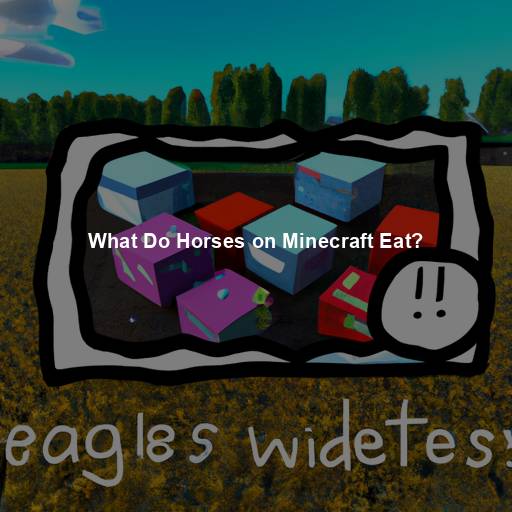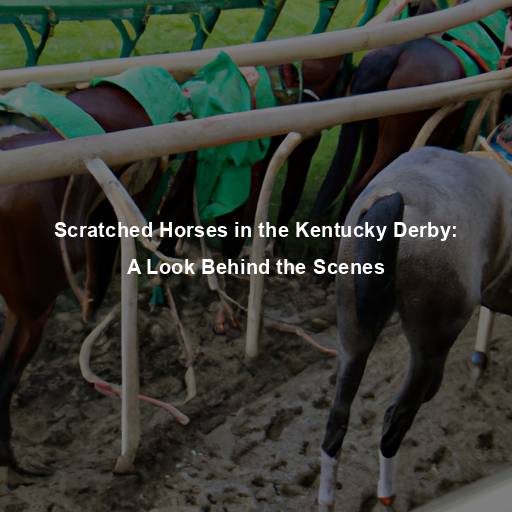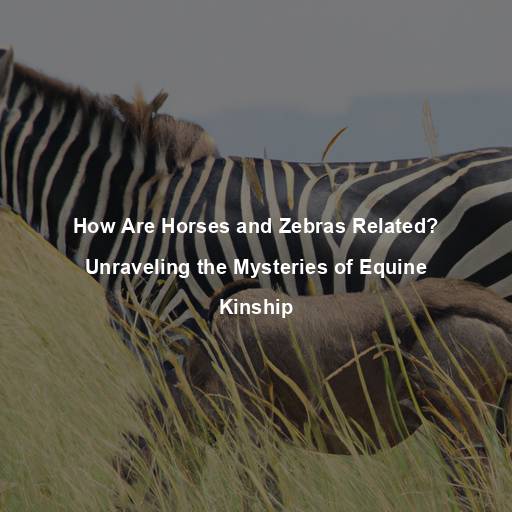Can Horses Eat Everything? Debunking Common Misconceptions
Last Updated on July 25, 2023 by Evan
Contents
- 1 Understanding the Equine Diet
- 1.1 Myth #1: Horses Can Eat Anything
- 1.2 Myth #2: Grass Is All They Need
- 1.3 The Equine Digestive System: A Closer Look
- 1.4 Essential Nutrients for Horses
- 1.5 Foods Horses Should Avoid
- 1.6 Senior Horses
- 1.7 Performance Horses
- 1.8 Horses with Metabolic Disorders
- 1.9 Allergies and Sensitivities
- 1.10 Horses with Specific Health Conditions
- 1.11 Pregnant and Nursing Mares
- 1.12 Establish a Feeding Routine
- 1.13 Provide Clean and Fresh Water
- 1.14 Feed High-Quality Forage
- 1.15 Monitor Body Condition
- 1.16 Use Slow Feeders
- 1.17 Introduce Dietary Changes Gradually
- 1.18 Consider Individual Needs
- 1.19 Regular Dental Care
- 1.20 Minimize Feed Waste
- 2 FAQs: Can Horses Eat
Understanding the Equine Diet
For centuries, humans have been enraptured by the ethereal allure of horses, witnessing their innate magnificence firsthand. Whether they elegantly storm across racetracks, leaving a trail of dusty wonder in their wake, or serenely graze in meadows, their majestic grace is a sight to behold. But, as conscientious caretakers of these mesmerizing creatures, it is imperative that we prioritize their welfare by providing them with a well-rounded and nourishing diet. However, the myriad misconceptions surrounding equine nutrition have sown seeds of confusion in our minds.
Myth #1: Horses Can Eat Anything
One of the most prevalent misconceptions is that horses can eat anything. While it is true that horses have a unique digestive system that allows them to extract nutrients from fibrous plant matter, this does not mean they can consume everything under the sun. Horses are herbivores, meaning their diet consists primarily of vegetation. However, not all plants are safe for them to consume.
Myth #2: Grass Is All They Need
There’s a lot of confusion surrounding the dietary needs of our equine friends, especially when it comes to their love for grazing on green pastures. Many believe that grass alone is enough to sustain their health, but that’s not entirely accurate. While grass does offer some fiber and nutrients, it falls short in providing all the vitamins and minerals necessary for horses to thrive. To ensure their optimal well-being, it’s important to complement their diet with a balanced mix of feed and forage.
The Equine Digestive System: A Closer Look
To better understand the dietary requirements of horses, let’s delve into their unique digestive system. Unlike humans, horses have a relatively small stomach and a large hindgut, which includes the cecum and colon. This specialized digestive system allows them to efficiently break down and extract nutrients from fibrous plant material such as hay and grass.
Essential Nutrients for Horses
Now that we have a basic understanding of the equine digestive system, let’s explore the essential nutrients that horses need to thrive.
Forage and Fiber
Forage, such as hay or pasture grass, should form the foundation of a horse’s diet. It provides the necessary fiber for proper digestion and helps maintain healthy gut function. Horses should have access to good-quality forage at all times.
Protein
When it comes to the incredible creatures known as horses, protein takes on an all-important role in their journey towards strength, repair, and growth. From the mighty legumes like alfalfa and clover to the grains and oilseeds that grace their pastures, these equine enthusiasts require a careful dance of protein sources to strike a harmonious balance. Ensuring that these magnificent beings receive the precise amount of protein they need is imperative, lest we fall into the harrowing pits of imbalances and deficiencies. Embrace this perplexing task and watch in awe as these majestic creatures thrive.
Carbohydrates
When it comes to fueling our majestic equine companions, carbohydrates reign supreme! These power-packed energy sources, found in grains like oats and barley, as well as select forage options, are of utmost importance. However, tread carefully, dear equestrians, as striking the perfect balance and variety of carbohydrates in our horses’ diets is key to warding off those pesky digestive disturbances and unwanted pounds. Stay informed, stay perplexed, and let the equine energy burst forth!
Vitamins and Minerals
Keeping horses healthy and thriving requires a careful balance of essential vitamins and minerals. From vitamin A to vitamin E, calcium to phosphorus, these vital nutrients play a pivotal role in their overall well-being. While some of these valuable components can be sourced from forage, others may necessitate the assistance of fortified feeds or mineral blocks to ensure optimal supplementation.
Foods Horses Should Avoid
As equestrian enthusiasts, we must acknowledge the intricate dietary needs of our majestic equine friends, while simultaneously maintaining vigilance against the perilous gastronomic hazards lurking within the realm of their sustenance. Permit us to delve into the enigma surrounding these equine consumables, as we unmask the dastardly culprits that lay in ambush, waiting to inflict harm upon these noble creatures. Let us illuminate the forbidden fruits and verdant intrigues that necessitate utmost caution, in order to preserve the vitality and well-being of our equine companions. May our efforts be manifest in this enumeration of the common alimentary perils that horses ought to eschew, in order to gracefully traverse the treacherous terrain of their gastronomic journey.
Did you know that chocolate, a beloved treat for many, actually poses a hidden danger to horses? Surprisingly, this delicious indulgence contains theobromine, a chemical that can be highly toxic to our equine friends. It’s bewildering how something so delectable can hold such potential peril for these majestic creatures. So, it’s crucial to keep your horses far away from any chocolate temptations to ensure their well-being and steer clear of any perplexing situations.
Did you know that certain vegetables like onions and garlic may lead to anemia in horses when consumed excessively? It’s quite perplexing how such common ingredients can have negative effects on our equine friends. So, if you are a horse owner or enthusiast, it’s important to be aware of the potential risks that these seemingly harmless vegetables can pose to our noble companions. Stay informed and keep your horses healthy by limiting their intake of onions and garlic!
Avocados, cherished for their creamy texture and versatile flavor, hide a secret that may come as a surprise. Revealing an unexpected twist, these beloved fruits possess a toxin known as persin, with potential harm posing a perplexing predicament for our equine friends. A curious caution is thus warranted, as this revelation underscores the importance of awareness when it comes to our four-legged companions and their avocado adventures. Stay vigilant, for nature’s bounty may often unveil unexpected complexities.
Did you know that raw potatoes can actually be harmful to horses? It turns out that these starchy tubers contain a substance called solanine, which can cause digestive problems for our four-legged friends. So, next time you’re feeding your equine companion, make sure to cook those potatoes thoroughly to avoid any health complications.
Rhubarb, a versatile vegetable often used in baking and cooking, has a darker side that can be a health concern for our equine friends. It turns out that the leaves of this vibrant plant contain oxalates, which, when ingested in large quantities, can potentially wreak havoc on the delicate kidneys of horses. Whilst rhubarb remains a beloved ingredient in our kitchens, it is essential to exercise caution when it comes to our four-legged companions and ensure they steer clear of the leafy greens to avoid any perilous consequences.
Senior Horses
As horses age, their nutritional needs may change. Senior horses often face challenges such as dental issues, decreased digestive efficiency, and difficulty maintaining weight. To address these concerns, special feeds formulated for senior horses are available. These feeds are typically easier to chew and digest, and they often contain added nutrients to support joint health and overall vitality.
Performance Horses
When it comes to horses engaged in intense endeavors like racing, show jumping, or endurance riding, their fuel needs skyrocket. These majestic creatures crave diets that not only fuel them up but also aid in building muscles and bouncing back from rigorous sessions. Thankfully, the equine market offers a plethora of specialized feeds tailor-made for performance horses, boasting an extra dose of calories and potential additives like electrolytes to quench their thirst for hydration.
Horses with Metabolic Disorders
Some horses may suffer from metabolic disorders such as Equine Metabolic Syndrome (EMS) or Insulin Resistance (IR). These conditions can lead to weight gain, laminitis, and other health issues. Managing the diet of horses with metabolic disorders involves careful regulation of sugar and starch intake. Low-sugar and low-starch feeds, along with controlled access to pasture, are often recommended for these horses.
Allergies and Sensitivities
Just like humans, horses can develop allergies or sensitivities to certain foods. Common allergens for horses include soy, corn, and alfalfa. If a horse exhibits signs of an allergic reaction, such as skin irritation or digestive upset, it may be necessary to eliminate the suspected allergen from their diet. Working with a veterinarian or equine nutritionist can help identify and manage these dietary sensitivities.
Horses with Specific Health Conditions
When it comes to our equine friends, their health and well-being are of utmost importance. One particular aspect that needs attention is their diet, especially when certain health conditions are involved. Take, for instance, horses dealing with gastric ulcers; a specially tailored diet that includes frequent small meals and a higher ratio of forage can work wonders in buffering stomach acid. For those with liver or kidney issues, adapting their diet to lighten the burden on these essential organs is crucial.
Pregnant and Nursing Mares
As we watch the miracle of life unfold before our eyes, it becomes evident that pregnant and nursing mares have a unique and exceptional dietary demand. To nourish and nurture their growing foals, these majestic creatures require an elevated intake of calories, protein, vitamins, and minerals. The equestrian world recognizes the significance of tailored feeds designed exclusively for broodmares, crafted with precision to meet their heightened nutritional needs. By providing utmost care through proper nutrition during this crucial period, we can ensure the well-being and radiance of both the mare and her precious foal.
Establish a Feeding Routine
When it comes to our equine companions, routine reigns supreme, and one aspect that shouldn’t be overlooked is their feeding schedule. Consistency is key, with meals being doled out like clockwork – a symphony of sustenance. By establishing regular intervals and adhering to set mealtimes, we not only nurture a well-functioning digestive system, but also safeguard against any tummy turmoil that may arise.
Provide Clean and Fresh Water
Water is a crucial component of a horse’s diet and should be available at all times. Ensure that your horse has access to clean and fresh water, preferably in a large trough or bucket that is easily accessible. Regularly clean and refill the water source to maintain its cleanliness.
Feed High-Quality Forage
When it comes to nourishing our magnificent equine companions, there is an essential element that reigns supreme – forage. It is undeniably the cornerstone in a horse’s diet, bestowing them with the sustenance they crave and requiring our diligent attention. Optimal forage selection is critical, like a discerning epicure searching for the finest culinary delight, as we must ensure the hay or pasture grass is impeccable, untouched by the clutches of mold or dust. Remember, allowing horses to partake in a limitless supply of forage throughout the day aptly simulates their innate grazing instincts, an intriguing glimpse into their enigmatic world.
Monitor Body Condition
As horse owners, we are constantly concerned about our beloved companions’ well-being. One essential aspect that deserves our utmost attention is their body condition. By regularly monitoring their weight, we can ensure that they remain in optimal health. However, the task of adjusting their diet can leave us perplexed and unsure.
Use Slow Feeders
Are you tired of seeing your horses gulp down their food in seconds? Say goodbye to those worries with the introduction of slow feeders. These innovative devices or methods bring a touch of nature to your horse’s feeding routine by slowing down their consumption of hay or forage, ensuring a more balanced and unhurried approach to mealtime. Embrace this revolution in equine nutrition, and say hello to a healthier, more contented four-legged friend.
Introduce Dietary Changes Gradually
When it comes to your beloved equine companion, caution and careful consideration should accompany any dietary modifications. Abrupt alterations to their nourishment can wreak havoc on their delicate digestive system, potentially resulting in debilitating colic or a host of other health complications. It is imperative, then, to proceed with patience and prudence, gradually introducing new feeds or tweaking their ration over a measured span of days or even weeks.
Consider Individual Needs
Every horse is unique, and their dietary needs may vary. Consider factors such as age, activity level, and overall health when determining their diet. Some horses may require more or less feed, additional supplements, or special considerations based on their individual requirements.
Regular Dental Care
Maintaining a horse’s dental health is of utmost importance, as it directly impacts their ability to properly masticate and digest food. It is crucial to prioritize regular dental check-ups and proactively address any issues with floating, a technique used to smooth out jagged edges and promote comfortable chewing for our equine companions. By taking these necessary steps, we can ensure our horses have the best chance at optimal digestion and overall well-being.
Minimize Feed Waste
To reduce feed waste and keep feeding areas clean, use feeders or containers that are appropriate for the size and behavior of your horse. Avoid overfilling feeders, as horses may scatter or waste excess feed. Regularly clean feeding areas to prevent the accumulation of spoiled or moldy feed.
FAQs: Can Horses Eat
Can horses eat carrots?
Yes, horses can eat carrots. Carrots are safe and nutritious treats for horses in moderation. They are a good source of vitamins and minerals, particularly vitamin A, which is important for a horse’s overall health. When feeding carrots to horses, it is essential to cut them into small, manageable pieces to prevent choking.
Can horses eat apples?
When it comes to equine dietary preferences, who would have thought that horses could feast on apples? Yes, you heard it right! These juicy fruits, brimming with vitamins and fiber, have become a go-to snack for our four-legged friends. But, hold your horses! Before handing over that apple, ensure to evict those pesky seeds and cores, as they pose a potential choking hazard. Moreover, like finicky eaters, some horses may have a sweet tooth sensitivity, hence serving apples in moderate portions is prudent. Your trusty steed will thank you for this tantalizing treat!
Can horses eat grass clippings?
When it comes to the munching habits of our equine friends, experts advise against serving them a plate of grass clippings. While it may seem like a natural choice, there are myriad reasons to tread carefully in this leafy territory. Firstly, the swift fermentation of freshly clipped grass can result in tummy troubles for horses, potentially leading to the dreaded colic. Moreover, let’s not forget that those picturesque clippings could harbor hidden pesticides or unfriendly chemicals, posing a real danger to your beloved steed. To ensure their well-being, it’s best to stick to fresh pastures or pre-cut hay – a healthier, safer choice!
Can horses eat bread?
While horses can eat bread, it is not an ideal food for them. Bread lacks the necessary nutritional value for horses and can be high in sugar and carbohydrates. Feeding horses large quantities of bread regularly can lead to weight gain, digestive problems, and even laminitis. If you choose to give your horse bread as a treat, it should only be in moderate amounts and should never be moldy or spoiled.
Can horses eat potatoes?
No, horses should not be fed raw potatoes or potato peelings. Raw potatoes contain solanine, a toxic substance that can be harmful to horses if ingested in large quantities. Cooked potatoes, on the other hand, may be given in small amounts as an occasional treat. However, potatoes should never replace a horse’s regular diet and should always be fed in moderation.
Can horses eat chocolate?
It’s a definite no-go when it comes to horses and chocolate. Why? Well, it’s all about the theobromine and caffeine lurking in those sweet indulgences. Even the tiniest nibble can send a horse’s heart racing, leave them fidgety, and can wreak havoc on their delicate digestive system. In the worst-case scenario, it could even trigger seizures or, tragically, bring about the end of our equine friends. So, remember, keep any and all chocolate goodies far away from our majestic creatures, and let’s ensure they only receive treats that won’t have them galloping towards danger.
Can horses eat grass clippings that have been dried as hay?
When it comes to horses munching on dried grass clippings, the situation gets a bit hay-wire. While it’s possible for them to chow down on these clippings once they’re properly dried, processed, and transformed into hay, the advice from the equine experts out there is to stick to bona fide hay from trustworthy sources. The nutritional content and potential pathogens in dried grass clippings can be as unpredictable as a wild stallion, so it’s wise to seek advice from an equine nutritionist or a vet to guarantee that your horse’s dietary needs are met without any unforeseen hurdles.
Can horses eat bananas?
It may come as a surprise, but did you know that horses can partake in the sweet delight of bananas? These fruity wonders are not only safe for our equine companions but also provide a boost of potassium, fiber, and energy. However, as with any treat, caution is key – moderation is a must when it comes to offering these yellow treasures to our four-legged friends. Before serving, remember to peel away the protective layer, as horses do not possess the culinary finesse to nibble through it. Just like our varied palates, horses’ preferences differ too. Some may joyously chomp on this peculiar delicacy, while others may exhibit indifference. Thus, it is crucial to introduce this snack gradually, keenly observing their reaction, as we navigate the ever-mysterious world of equine culinary tastes.







